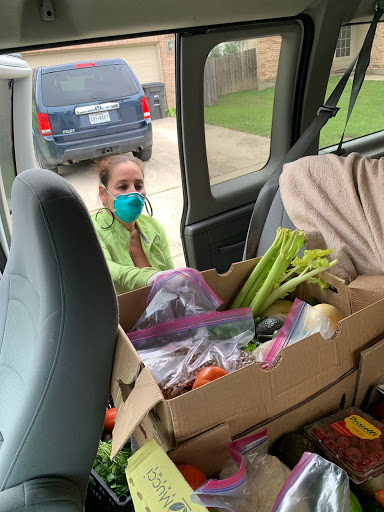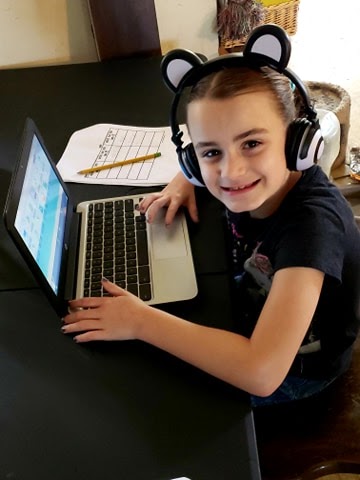For the past six months, Earthworks and dozens of grassroots groups, frontline communities, and ally organizations have been building a coalition to address impacts of the oil, gas, and petrochemical buildout from the Permian Basin in west Texas and southeast New Mexico to the Gulf Coast of Texas and Louisiana.

When the COVID-19 pandemic began sweeping through the United States, our coalition knew that people most impacted by the extractive industry would be hit particularly hard. Now we have the data: a Harvard study has shown that increases in air pollution are directly linked to increased COVID-19 death rates. Recognizing that we are in unprecedented times that call for acts of bold, collective support, we decided right away to establish a COVID-19 rapid response fund to support communities on the front lines of both the oil, gas, and petrochemical buildout and COVID-19.
In just a few weeks, we’ve mobilized over $20,000 towards community relief at the front lines of environmental justice struggles and the COVID-19 pandemic. Here are a few stories:
COVID-19 has hit Louisiana particularly hard, hitting communities in Cancer Alley even harder – the death rate in St. James parish is five times higher than the national average. Thanks to the Harvard study mentioned above, the link between environmental justice and COVID-19 is crystal clear. And with ‘super-polluter’ Formosa Plastics trying to push through one of the world’s largest petrochemical complexes in the world into St. James, the urgency of the fight has never been more stark. Our COVID Rapid Response fund is supporting members of Rise St. James who are literally fighting for their survival, even organizing socially distant protests while producing and distributing life-saving masks and other supplies to vulnerable residents.

In neighboring Texas, indigenous communities are bearing disproportionate impacts of COVID-19 as well. Studies have found that death rates in native communities are four times the national average, largely due to high rates of underlying conditions and systemic lack of access to safe housing and medical care – all factors that make COVID-19 more severe. So when the pandemic hit, our allies the Society Native Nations and the Carrizo-Comecrudo Tribe of Texas sprung into action.
Our rapid response grants are supporting both groups’ mutual aid efforts, which include delivery of fresh produce, medicine, and sanitation supplies to the most vulnerable in their communities. While providing crucial supplies for elders and educational resources for children, Society of Native Nations continues to fight the Permian Highway Pipeline, a fracked gas pipeline under construction south of Austin. Just last week, residents’ well water turned brown after Kinder Morgan spilled drilling fluid into local water supplies. Meanwhile, the Carrizo-Comecrudo Tribe is leading efforts to stop three proposed Liquified Natural Gas (LNG) export terminals along the Gulf Coast near Brownsville. Undeterred by the pandemic, leaders of the Tribe are organizing a Human Rights Tribunal on May 22 and 23 to address the desecration of sacred sites from the LNG projects. The Tribunal will take place via Zoom and livestream – you can find out how to participate here.
With the oil industry cratering, environmental enforcement lacking, and the pandemic crisis raging on, we are working to adjust to our rapidly evolving reality and advance our goals of protecting communities and the climate. In the meantime, we are committed to supporting those leading the fight on the front lines who are battling extractive industry and COVID.
All photos courtesy of the Carrizo-Comecrudo Tribe.
